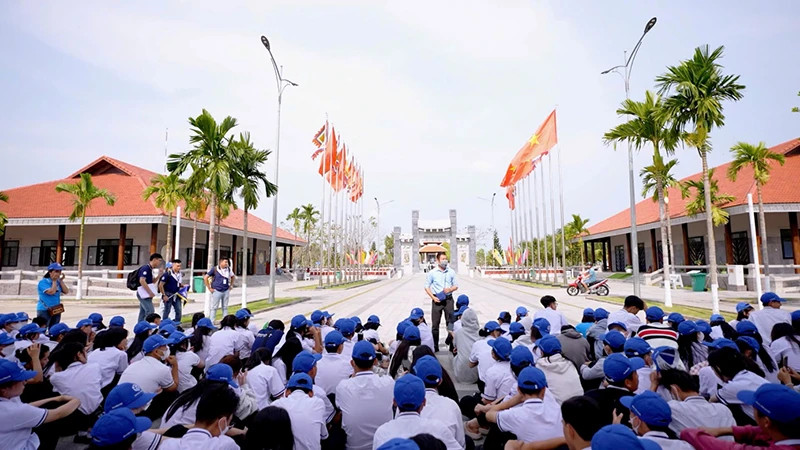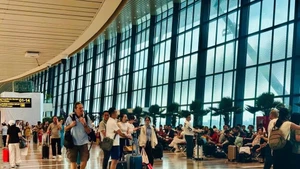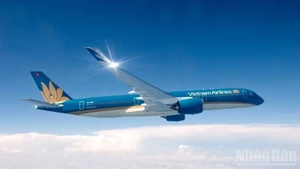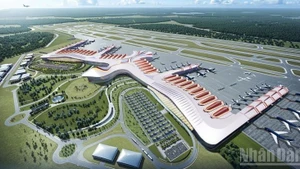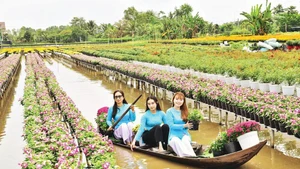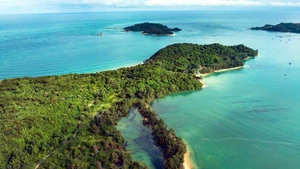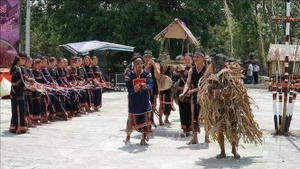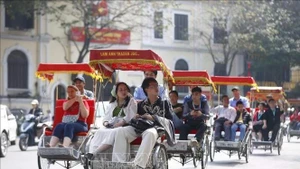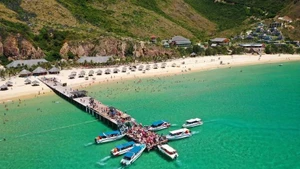According to many tourists, visiting the Southwest region of Vietnam provides an experience of warmth, friendliness, and hospitality from those involved in tourism. This contributes to a positive impression of the area.
Falling short of potential
At many tourist destinations, a lack of professionalism among tour guides is evident. The workforce is often composed of “homegrown talent,” where business owners hire relatives or acquaintances to take on roles such as management, guiding, interpreting, and even cooking.
These workers are usually untrained or have attended only a few short-term, non-professional courses, leaving them without essential skills.
Phuong Nga, a manager at an eco-tourism site in Tra On District, Vinh Long Province, shared that her family expanded their orchard into an eco-tourism site. Most of the staff are family members with no formal training. As a result, it’s challenging to scale up or promote the site effectively since no one has experience connecting tours or managing marketing strategies.
At various tourist spots, guides and narrators often repeat scripted presentations, lacking creativity and professional training.
Tuan Dat, a guide at a historical site in Kien Giang Province, said, “We are mainly selected from local cultural staff with history and geography knowledge but no formal tourism training. Additionally, the modest income makes it difficult to invest in further education or skill development.”
Tourism companies in the Mekong Delta face challenges in recruiting and training high-quality staff. There is a scarcity of managers and guides fluent in foreign languages. While local tourism training institutions have made progress, the quality of education still needs improvement.
Competition among tourism businesses nationwide for talent has intensified, leading to a “brain drain” toward larger cities like Hanoi and Ho Chi Minh City.
Le Dinh Minh Thy, Director of Vietravel’s Can Tho branch, stated, “Although we have implemented numerous internal training programmes, maintaining consistent quality across all branches nationwide remains challenging. The rapid pace of change in the tourism industry requires staff to continually update their technological skills and adapt to new market demands.”
Some experts note that while tourism training programmes have expanded in the Mekong Delta, there remains a lack of effective collaboration between training institutions and localities. Many graduates lack soft skills, language proficiency, and practical experience, which limits their employability.
Dr Nguyen Anh Tuan, Director of the Tourism Development Research Institute, pointed out some weaknesses: The Mekong Delta tourism workforce currently numbers around 150,000 people. Among them, 51% have not received formal training, and only 8% have university or postgraduate qualifications, mainly concentrated in Ben Tre, Can Tho, Tien Giang, Kien Giang, and An Giang.
Nguyen Quynh Thien, Vice Chairman of the Tra Vinh Provincial People’s Committee, stated: Currently, the province has two institutions offering tourism workforce training, including Tra Vinh University and Tra Vinh Vocational College. Each year, they train around 30 students specialising in tourism management, hospitality, and hotel services. The province has also collaborated on training nearly 1,200 learners on tourism entrepreneurship, professional tourism skills, and on-site interpretation practices.
Developing a high-quality tourism workforce in the Mekong Delta faces several challenges, including subpar training, insufficient talent retention strategies, and inadequate local workforce development. Moreover, training methods and curricula are often outdated, while salaries and benefits are not competitive enough to attract top talent.
Linking training institutions and businesses
To address these issues, experts recommend building long-term workforce development programmes, creating a database on labour and employment in tourism, and fostering collaboration between government agencies, businesses, and training institutions to establish legal frameworks for training initiatives.
According to Master Dinh Hieu Nghia, integrating internships and hands-on experience at tourism enterprises into the training process is crucial. Businesses should actively participate in developing practical training programmes tailored to specific job roles and tourism sectors, ensuring both short-term and long-term skill development.
Le Dinh Minh Thy emphasised that strengthening partnerships between training institutions and businesses is vital to addressing workforce challenges. Companies can support the design of industry-relevant training programs and provide opportunities for students to gain real-world experience through internships, mentorships, and direct interaction with professionals.
Soft skills, foreign language proficiency, and awareness of international tourism trends are essential to preparing graduates for an increasingly competitive industry. Collaboration between businesses and training institutions, alongside regular updates to educational materials, will enable the Mekong Delta’s tourism workforce to meet growing market demands.
Dr Tran Huu Hiep, Vice Chairman of the Mekong Delta Tourism Association, highlighted three pillars of sustainable tourism development in the region: workforce, tourism products, and spatial connectivity. The Mekong Delta faces shortages of skilled workers, distinctive tourism products, and effective regional connections.
Efforts should focus on aligning workforce training with market needs and local tourism development goals. Building clusters of tourism industries connected to Ho Chi Minh City and regional hubs is key.
Additionally, local tourism should prioritise training in foreign language skills, soft skills, and cultural knowledge. Programmes should link training with branding initiatives to promote the region’s tourism. Improved coordination between tourism markets, visitor demands, and regional attractions is essential.
